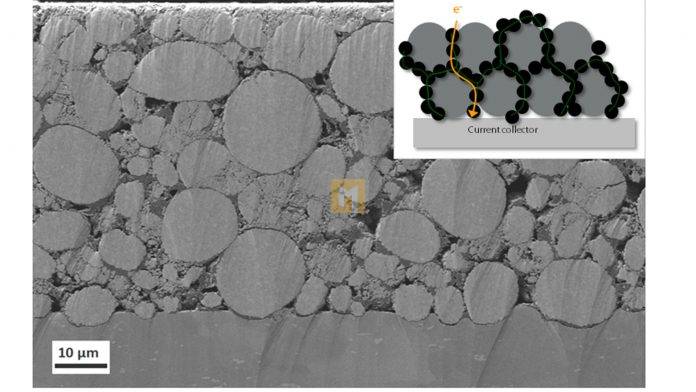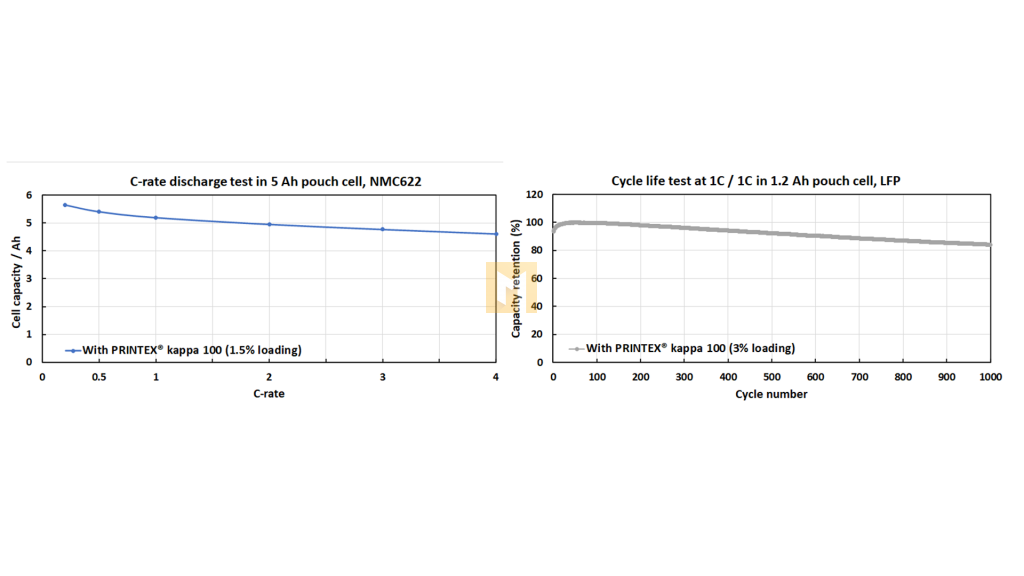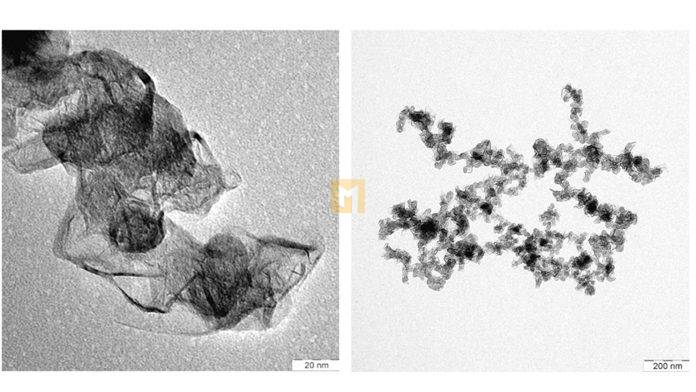Tech
Orion Engineered Carbons: Premium carbon black grades for lithium-ion batteries

Orion Engineered Carbons offers durable and highly conductive carbon black solutions for lithium ion batteries with its premium carbon black qualities.
Orion Engineered Carbons is an international chemical company with over 160 years of experience in manufacturing carbon black for tires, rubber products, plastics, coatings, printing inks, batteries and high performance applications. Orion has 14 manufacturing facilities around the world and four innovation centers on three continents, providing the broadest range of manufacturing processes in the industry. The strong experience of the company and the dedication of the Orion team allow close contact with customers to find innovative solutions for their needs.
As a global company, one of Orion’s strengths is the diversity of its workforce, which continually provides new ideas and the pursuit of excellence. Orion values talented people and is committed to their continued development, regardless of nationality, gender, age or sexual orientation.
Orion’s core values - responsibility, innovation and sustainable human relationships – are embedded in the corporate culture and are central to business decisions.
Promotes carbon dioxide emissions from traffic
As an engine of technological innovation, Orion focuses on the promise of electric mobility in reducing CO2 emissions in the transport sector and creating a CO2 neutral economy. The primary energy storage system for electric vehicles (EVs) are lithium-ion batteries (LIB), a system consisting of two electrodes (anode and cathode) and a partition between them. The system is immersed in an organic electrolyte. Lithium-ion batteries store energy through chemical reactions at the cathode and anode electrodes. The main advantages of LIBs over other energy storage systems are their high energy density and long service life.
Carbon black is a key component in LIB electrodes because it increases the electrical conductivity of the system, improving battery performance. Currently, the total demand for LIB in the carbon black market is 20 kilotons. This number will increase as the demand for LIB in electronic mobile and other applications increases. In 2030, total LIB sand production is expected to be around 84 kilotons

What is carbon black?
Carbon black is a form of carbon resulting from the incomplete combustion of hydrocarbons and consists of spherical carbon particles ranging in size from 10 to 500 nm. The core of the particle is amorphous, while the outer layer is made up of regions similar to graphite2, which give the material an intrinsic electronic conductivity. The structure of coal is determined by the fusion of soot particles into branched aggregates. Both properties, conductivity and structure, are fundamental for the performance of the battery, because through the branched aggregates of conductive soot particles (percolation network), the electrons generated in the electrodes are transported to the current collector. In the field of lithium ion batteries, carbon black is known as a “conductive additive”.
Another important parameter to consider are metal impurities. Metal particles such as iron (Fe), cobalt (Co), nickel (Ni), copper (Cu) and zinc (Zn) can negatively affect battery life.
Acetylene black is a type of carbon black characterized by high electronic conductivity, high structure and excellent purity. These properties make Acetylene Black a convenient conductive additive for LIBs. In 2018, Orion acquired French acetylene black manufacturer SN2A and developed its first lithium-ion battery carbon, PRINTEX® kappa 100.
PRINTEX kappa 100 is a premium carbon black grade specially designed for LIBs. The pure raw material used in the manufacture of PRINTEX kappa 100 and the unique production process lead to a very clean, highly graphitized and highly structured material.

- Extremely clean: PRINTEX kappa 100 is produced by thermal decomposition of acetylene gas using a high-quality process. Over +99% carbon content and very low metal impurity, Fe << 5 parts per million (ppm), Cu and Zn between low ppm and ppb, PRINTEX kappa 100 batteries have low self-discharge and long life. cycle life.
- High graphitization: PRINTEX kappa 100 is produced at very high temperatures (>2300°C), resulting in a high degree of graphitization, which gives low moisture content, high conductivity and good chemical stability under high voltage conditions.
- High structure: The high structure of PRINTEX kappa 100 allows easy dispersion of carbon during electrode preparation and the formation of a long-chain percolation network, which reduces internal resistance, improves cycle life and battery performance at high power. densities.
In addition, PRINTEX kappa 100 is considered an environmentally friendly material, as its CO2 footprint is the lowest among other highly conductive carbon black grades.
Discharge C rate tests were performed in 5 Ah pouch cells using lithium nickel-manganese cobalt oxide (NMC622) as active material and PRINTEX kappa 100 as conductive additive. The results show a capacity retention of 85% at 4C. In the second set of tests, PRINTEX kappa 100 was used on lithium iron phosphate (LFP) electrodes to perform cycle endurance tests in 1.2 Ah pouch cells. The results show that the capacity retention is 84% after 1,000 cycles.

This year, Orion announced it will build a greenfield plant in La Porte, Texas, to produce acetylene black. With this initiative, Orion will become the only acetylene black company in the United States to supply regional and global LIB customers. The start-up of the plant is expected to take place in the second half of 2024, which will quadruple the company’s effective acetylene-based additive manufacturing capacity and increase it by 12 kilotons per year. Along with other products, PRINTEX kappa 100 will be one of the premium qualities produced in the new factory.
Continuous development
Orion’s continuous development and search for customer satisfaction takes place at all levels, and the innovation team is constantly working on new carbon blacks to meet current and future market needs. The development of new qualities takes place internally, where researchers, production engineers, and marketing work together to find the best solutions for customers, and externally, together with other companies and universities, they develop comprehensive solutions to strengthen a certain area or industry.
The advantage of the technology is its flexibility, which enables the production of coal with a wide range of material properties and suitable for different uses. Just like with acetylene black, battery furnace blacks must also be highly conductive, well structured and very clean. In the interdisciplinary cooperation of departments and regions, Orion’s team is committed to developing new premium qualities that exceed customer expectations.
As part of external cooperation, Orion is involved in the HiQ-CARB project, which is a project funded by the European Union, which aims to develop sustainable, locally produced conductive additives, acetylene black and carbon nanotubes for use in lithium batteries. By awarding projects like HiQ-CARB, the EU aims to create a competitive manufacturing value chain in Europe for LIB countries and reduce technological dependence on other regions. In this project, Orion’s low CO2 footprint acetylene black and project partner Arkema’s resource-efficient carbon nanotubes (CNT) are produced and tested in LIB. The synergistic effect of both conductive additives, the short-range electrical pathways of acetylene black and the long-range electrical pathways of CNTs are also investigated. The environmental effects of acetylene black and CNT are assessed using a life cycle assessment.
Aware of the current and future demands of the lithium-ion battery industry, Orion accepts the challenge and continues to develop integrated solutions for the production of high-quality conductive carbon additives, focusing on customer needs and next-generation technical requirements. batteries.

















